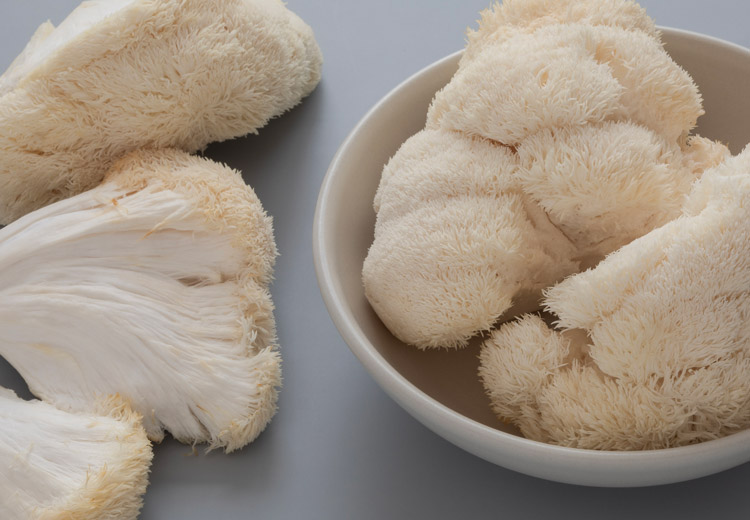Ancient medicine could hold the key to dementia treatment

Sponsored by

Sponsored by

A surprise discovery opened new research areas for scientists at the University of Queensland to investigate cognitive defects in humans
When neuroscientist Ramon Martinez-Marmol received a sample of mushroom to test on brain cells, he did not anticipate the results. “I was working in axonal growth [which are the thin fibres that connect nerve cells], and I had never seen this kind of effect before,” he remembers. “It was amazing.”
The sample contained extracts of Lion’s Mane mushroom (Hericium erinaceus), a fungus found throughout the northern hemisphere. Lion’s Mane, which looks like a collection of large white pom-poms with long threads, has long been used in Chinese and Korean medicine.
“One of my postdocs dug out a very ancient Chinese manuscript, which says that if you consume the mushroom, especially in soups, you’ll stay young for a long time,” says Frederic Meunier, a professor in the Queensland Brain Institute.
The mushroom does appear to have a significant impact on brain cells and could be vital in the fight against cognitive decline in ageing and dementia, such as Alzheimer’s disease. The number of people suffering from dementia continues to rise, affecting more than 51 million people in 2019. It is estimated that, by 2050, there will be 152 million people with Alzheimer’s disease and other dementia.
While dementia is considered an age-related disease, it is not an inevitable part of ageing. It is caused by damage or loss to nerve cells, also known as neurons, and their connections in the brain.
“In the last 15 years, we couldn’t find anything that would help with dementia,” says Meunier. Scientists identified molecules that could promote nerve growth, but these molecules, known as peptides, could not cross the brain. “What we really want, and which we hadn’t found until now, is a molecule that can cross the brain barrier and stimulate your own nerve growth factors,” he says. “And Lion’s Mane mushroom-identified molecules have the power to stimulate this activity in the brain.”
In collaboration with Gachon University, Chungbuk National University and Korean company CNGBio, which supplied the mushroom extracts, Meunier and colleagues identified new active compounds from the mushroom. Their findings were published in the Journal of Neurochemistry.
By identifying the active compounds, researchers could tailor a drug to promote neural growth and treat dementia, reducing the dose required and making it more effective. When feeding mice refined extracts compared with crude Lion’s Mane samples, researchers found that the mice required a significantly lower dose to achieve the same results.
“If you use our identified molecules, the concentration was five micrograms per kilogram, whereas the crude extract was 250 milligrams per kilo – that’s almost two orders of magnitude better,” says Meunier. “If you want to reach the level where it becomes a drug, that will have to be even less. That’s going to come down to rational chemistry design” and designing more potent molecules that mimic the mushroom’s effects.
The University of Queensland is collaborating on this research with several companies, including Unearthed Medicinals in Australia and CNGBio, testing whether their Lion’s Mane products contain the right active molecules. “It’s now a race to find the molecules that are going to be useful” and design their pharmaceutical analogues, Meunier says.
However, within Queensland Brain Institute, researchers are trying to understand how and by which mechanisms the Lion’s Mane molecules are working. Understanding the human brain – both when it is healthy and ill – is not a simple task. “As scientists, we do not yet have biomarkers for cognitive defects,” Meunier says. “That’s what’s really driving our research efforts at the moment.”
While some people start to experience cognitive decline as they age, “there are others, who are 70, 80, 90 [years old], who can memorise anything”, he says. By comparing those who experience cognitive decline and those who don’t, he aims to find biological markers and investigate what happens when brain cells from these people – grown from skin-derived stem cells – are treated with Lion’s Mane-derived molecules.
“We could see which compounds respond the best and then come back to the patients and see if it works,” Meunier says. To explore this area, he hopes to set up a research hub called the Centre of Research Excellence in Neuronal and Synaptic Plasticity for Healthy Ageing.
“The Lion’s Mane molecules have a good profile,” he says. “And now it’s going to be up to rational chemistry design to try and make it better and potentially make a drug.”